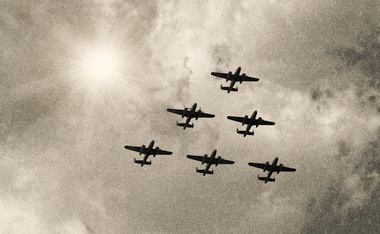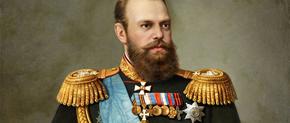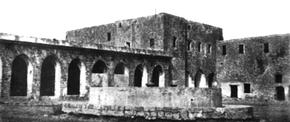The views expressed in our content reflect individual perspectives and do not represent the authoritative views of the Baha'i Faith.
During Abdu’l-Baha’s European journeys in 1912 and 1913, he strongly warned national leaders about the onset of a world war — a war more devastating and destructive than any ever waged in the past.
In June of 1914, when a Bosnian assassin killed Archduke Franz Ferdinand, the head of the Austro-Hungarian Empire, Abdu’l-Baha’s prophetic forewarnings began to tragically come true.
Europe succumbed to a horrific four-year ordeal that would encircle the globe, bring down entire countries and dynasties, and result in the death of at least 15 million people — a bloody, violent toll unmatched by any previous war in human history.
RELATED: How to Live an Exemplary Baha’i Life
Translator and scholar Adib Masumian’s new book Abdu’l-Baha in Europe 1912-1913 details these dire warnings and their outcomes, as the author explained in an interview with BahaiTeachings.org.
David Langness: Adib, your entire book, because it recounts a time immediately prior to the outbreak of World War I, is filled with Abdu’l-Baha’s admonitions to the Europeans and their leaders about averting war. He consistently promulgated the Baha’i principle of universal peace secured by a system of global governance. Clearly, his warnings were not heeded, at least by the political and religious leaders of the time. Can you comment on Abdu’l-Baha’s prescience and why his warnings were ignored?
Adib Masumian: “Prescience” is indeed the right word for it. On 13 December 1912, the last day of Abdu’l-Baha’s voyage from America to England, someone asked him about the possibility of a world war, and he replied, “In America, I stated that the Balkan War was the beginning of the world war to which you refer.” He meant the First Balkan War, which was underway at that time; it had broken out in October 1912 and would last until May 1913.
A couple of weeks later, while in London, Abdu’l-Baha said:
I hope that the Balkan War shall come to an end … Otherwise, the flame of this war shall devour the earth — in particular Europe, which is even as an arsenal filled with explosives, and needs only a single spark to utterly obliterate the entire continent. Thus, there is no recourse but to embrace universal peace. This, indeed, is the most pressing issue of the day; I pray God that this peace will be realized.
Clearly, Abdu’l-Baha understood the dire nature of the situation and did what he could to warn people about what would happen if it deteriorated.
This takes us to your other question about why his admonitions might have gone unheeded, and I think all we can do is speculate. One possibility is that, as the leader of a relatively small and new religion at the time, Abdu’l-Baha’s influence was probably limited. His warnings might not have reached a wide enough audience, particularly those in positions of political power.
But even if his words had reached them, I wonder if they would have found it difficult to believe that a world war could actually break out since there was no historical precedent for one back then. People might have been more inclined to regard those conflicts as localized situations that could be contained. The leaders of some nations may have also been more focused on economic interests in maintaining the status quo — or even in conflict, motivating them to prioritize short-term gains over long-term consequences that their actions and policies might have entailed.
David: Clearly, Abdu’l-Baha exerted an enormous amount of energy promoting peace during his European sojourn, coming as it did after an exhausting eight months of intense travel and activity in North America. During the time the book covers, he was 68-69 years old and intermittently ill, having survived 40 years of exile and imprisonment in pestilential conditions, and yet he undertook a grueling schedule of travel and speaking engagements. This seems utterly remarkable. What impelled him? How did he keep going?
Adib: Very true. In fact, Abdu’l-Baha himself gives a couple of examples in a tablet to a Persian Baha’i. The translation is not included in the book itself, but it can be found in my supplement to it, which is freely available online. In that tablet, Abdu’l-Baha wrote:
In Budapest, my constitution was most unsound. My body was weak, my respiratory illnesses intense; the exhaustion of my nerves was constant, the weather cold as could be. Notwithstanding all this, every day and night I gave talks at three large gatherings, and this is excluding the questions of others that I would answer at my home.
He then continues, describing an occasion in Vienna:
Especially taxing was one night in particular when I went to a place where there were a hundred and twenty stairs made of marble that was cold as ice; I ascended them with exceeding powerlessness and fatigue, and then spoke for two hours without interruption. I promoted the Word of God, and my talk was accompanied by a comprehensive translation.
The book’s online supplement features several such tablets, in which Abdu’l-Baha personally attests to how exhausting this trip was for him.
RELATED: Abdu’l-Baha Responds to a Blank Letter
So yes, one does wonder what kept him going. What this chronicle makes clear is that Abdu’l-Baha only regarded his physical health as a vehicle for the promotion of world peace and for serving the Baha’i Cause and other Baha’is. We know this because he once said in Germany, “I wish for good health only so that I might expend it in service to the Cause of God and the loved ones of the Abha Beauty [Baha’u’llah].” Later, when someone inquired about his health during his final sojourn in France, he replied:
I attach no importance to physical health. So long as one is not bedridden, one must be satisfied with this amount of health. What is of real significance is spiritual health, which is enduring. A person’s soul must be strong and healthy; this is what is important.
Of course, we do find a few cases in this volume where Abdu’l-Baha’s illnesses grew so debilitating as to have left him bedridden, and this is the one extreme scenario — the single exception to his rule — mentioned in that quote. For the most part, however, Abdu’l-Baha “powered through” whatever ailments he contended with so the Baha’i Faith could be spread by its best proponent.
Shortly after he left the West for the last time, toward the end of his voyage from France to Egypt in June 1913, he relates an anecdote that gives us insight into what sustained him during the grueling journey to the West he had just concluded:
When I was on my way to America, I had no hope that I would return in good health, for I was quite ill and my constitution was very weak. In the course of that journey, moreover, my sickness and weakness grew more severe several times. Yet on every one of those occasions, through the aid and bounty of [Baha’u’llah], as well as my preoccupation with serving the divine threshold and the happiness that resulted therefrom, my sickness was turned into good health, and my weakness was changed into strength. His assistance and protection reached me at every turn, and the succor and support of the Most Glorious Kingdom were always at my side. This has remained the case to this very moment …
Adib Masumian’s new translation of the second volume of Mahmud’s Diary, titled Abdu’l-Baha in Europe 1912-1913, is now available from George Ronald: www.grbooks.com

















Comments
Sign in or create an account
Continue with Googleor